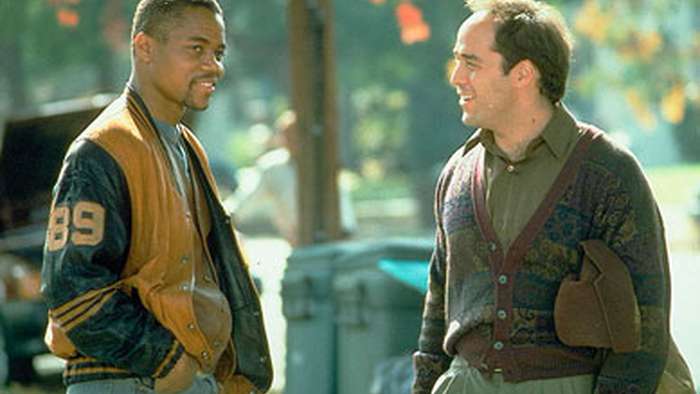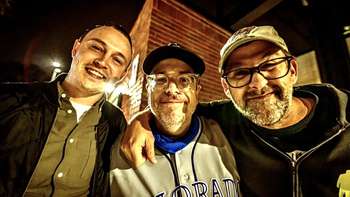Hmmm, anti-authoritarian views and addressing social concerns and issues related to the government and public affairs?
Tick!
DIY ethic?
Tick!
Attire that deliberately deviates from society’s norms?
Tick!
Rebellion against watered down arena rock and disco?
Having started off as a subculture that eventually became absorbed by the mainstream?
So far for the commonalities.
Musically, differences are obvious, however, it was long before mainstream acts like Run DMC started merging both styles that a cultural exchange was first established by acts like Grandmaster Flash or Afrika Bambaataa. Pioneers who initially started to incarnate at underground venues that were also frequented by punk kids and eventually found prominent exposure through Malcom McLaren’s Buffalo Gals and the evolution of the Beastie Boys.
Eventually sampling rock parts in hip-hop songs became commonplace and eventually became a hip-hop approach to heavy music, which became prevalent in the 1990s – Judgment Night soundtrack, anyone?
So far so good.
Now, German hip-hop was awkward in the beginning and perceived to be a mere watered-down emulation of stereotypes that were coined in the new world, perpetrated by middle-class Gymnasiasten.
As a juvenile delinquent I felt that left radical squats exerted a magnetic pull that I could not resist, and it was the epicentre where a lot of the early ‘90s hardcore and crust punk activities found a forum. In the mid-‘90s the first German hip-hop acts with radical messages started popping up in those circles – think an awkward and simplistic Teutonic variant of the movement Public Enemy became known for. It was a start for Krauts with attitude that followed the footsteps of early acts like Advanced Chemistry and Die Fantastischen Vier.
Fast forward to the noughties and onward and, slowly, German hip-hop with its full breadth started infiltrating the mainstream – a development that from 2010 onwards exploded, lost its awkwardness and started to blossom and bloom.
This is of course a very superficial and personal, by no means comprehensive, account. However, the point being is that as one grows older it can prove to harder to get psyched on new musical styles, especially since history tends to repeat itself and often it is often the old infused with new blood.
I witnessed how German hip-hop emancipated itself and over the last twenty years to develop a distinguishable, diverse and self-confident lane for itself that works outside the confines of language barriers.
Some parts of the Berlin hi- hop scene took more than a few pages from the books from the French banlieue rappers, others startied creating a melange of dancehall and reggae mixed with their gangsta attitude and centred around their respective cities, then there are the storytellers that have always been a major constituent of the German hip-hop scene, and there is a new scene that has created its own distinctive language with incorporating their native language with Germanic and thereby have created a percussive and additional instrument that works surprisingly well.
It became exciting again, sounded great, and has since become an integral part of my playlists with certain current acts having something to offer that I can see resonate with today’s teenagers in a manner not unlike what appealed to me and drew me into the maelstrom of the culture that still forms part of my DNA.








